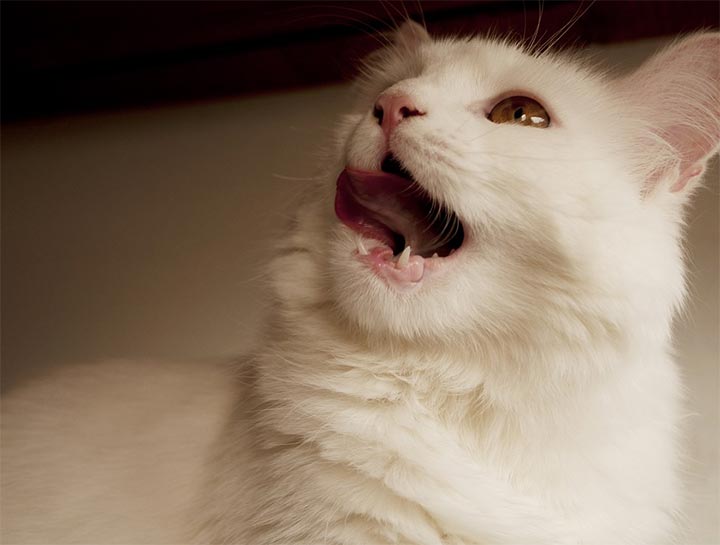Preventive Dental Care
Routine dental care matters.
Dentistry
Routine and preventive dental care is vital to your cat's long term health. Pets with poor oral hygiene can develop periodontal disease, which can often lead to heart, lung, and kidney disease.
Our veterinarians perform basic oral exams on all our patients during their Annual Wellness exam. Kittens will be examined to detect any problems related to the deciduous (baby) teeth, missing or extra teeth, swellings, and oral development. Senior cats will be evaluated for developmental anomalies, the accumulation of plaque and tartar, periodontal disease, and oral tumors.
Keeping your cat’s mouth comfortable and healthy can be challenging. Cats are not always willing participants when it comes to dental hygiene Cats do not brush their teeth daily, nor do they sit still for a professional cleaning.
General anesthesia is required to perform a more thorough oral exam as well as any dental procedure. We also take digital x-ray images of all of the teeth. This allows us to identify problems that occur both above and below the gum line. We can then perform cleaning and polishing (dental prophylaxis) and, if needed, surgical extractions to manage and treat severe oral disease conditions.
Do not worry that tooth extraction will interfere with your cat’s ability to eat. Feline teeth are designed for grasping and tearing flesh but not chewing their prey. We feed “bite-sized” bits so the teeth are not being used as nature intended. Cats often eat better with no teeth than they do with painful, diseased teeth.
It is not possible for the doctor to predict in the exam room how many, if any, teeth will need to be extracted. We only extract a tooth when there is no other option. Healthy teeth are not extracted. The most common reasons for extraction are: fractured crown, periodontal bone loss, root tip abscess or painful erosion of the enamel.
Dental Care Tips for Cats
- Schedule an Annual Wellness exam for your cat every year.
- Schedule regular dental cleanings as recommended
- Brush your pet's teeth daily, or give your pet a dental hygiene chew every other day.
- Use treats that control tartar and plaque and promote good dental health.
- Call us if you notice any of the following : gradual decline in eating, “chewing” on one side of the mouth, dropping dry food, pawing at mouth, drooling and/or bad breath, hissing or running away from the food bowl, hiding

